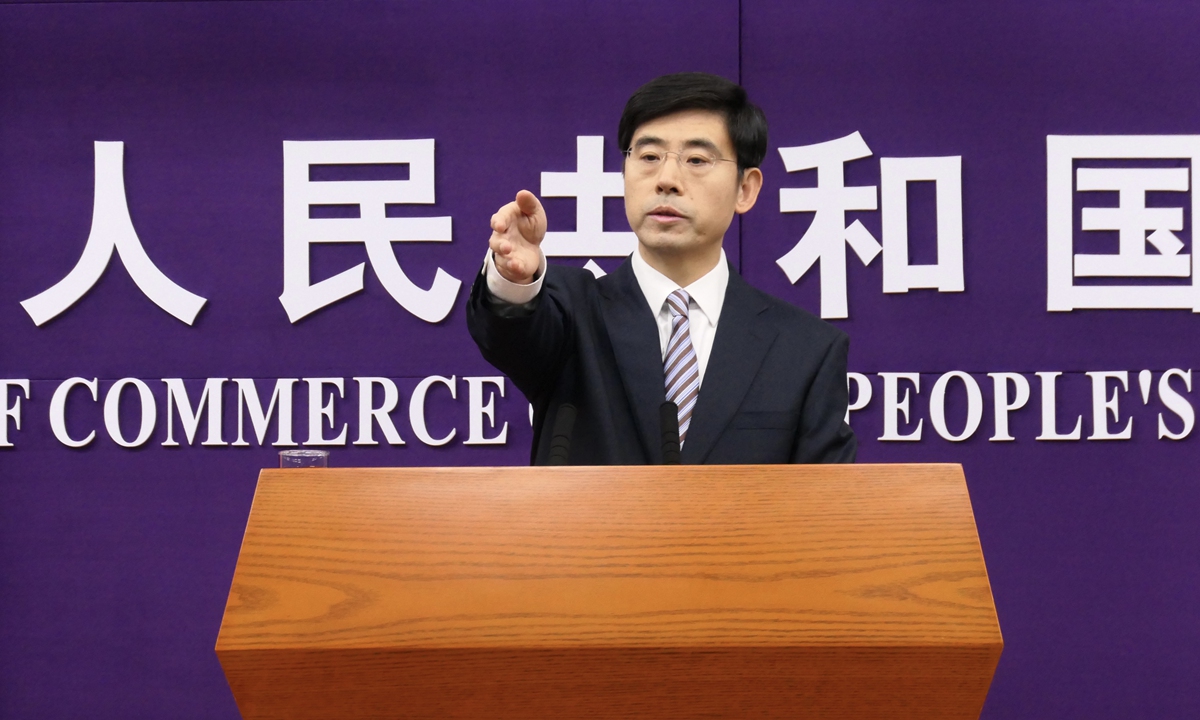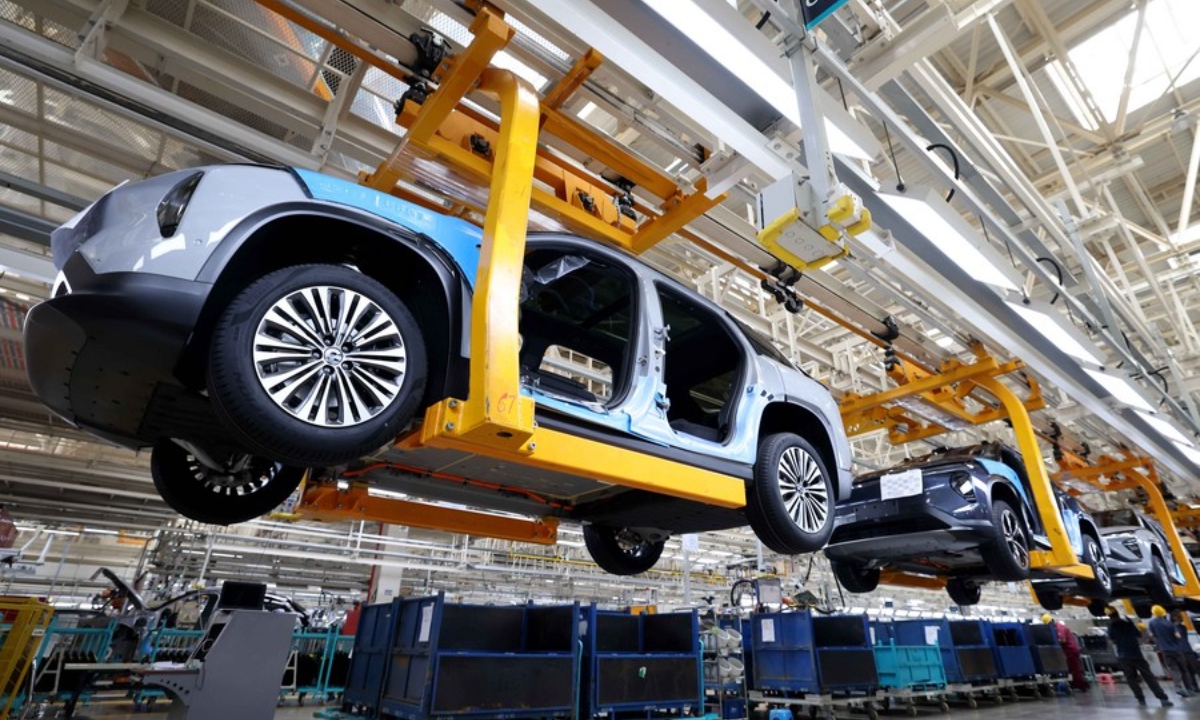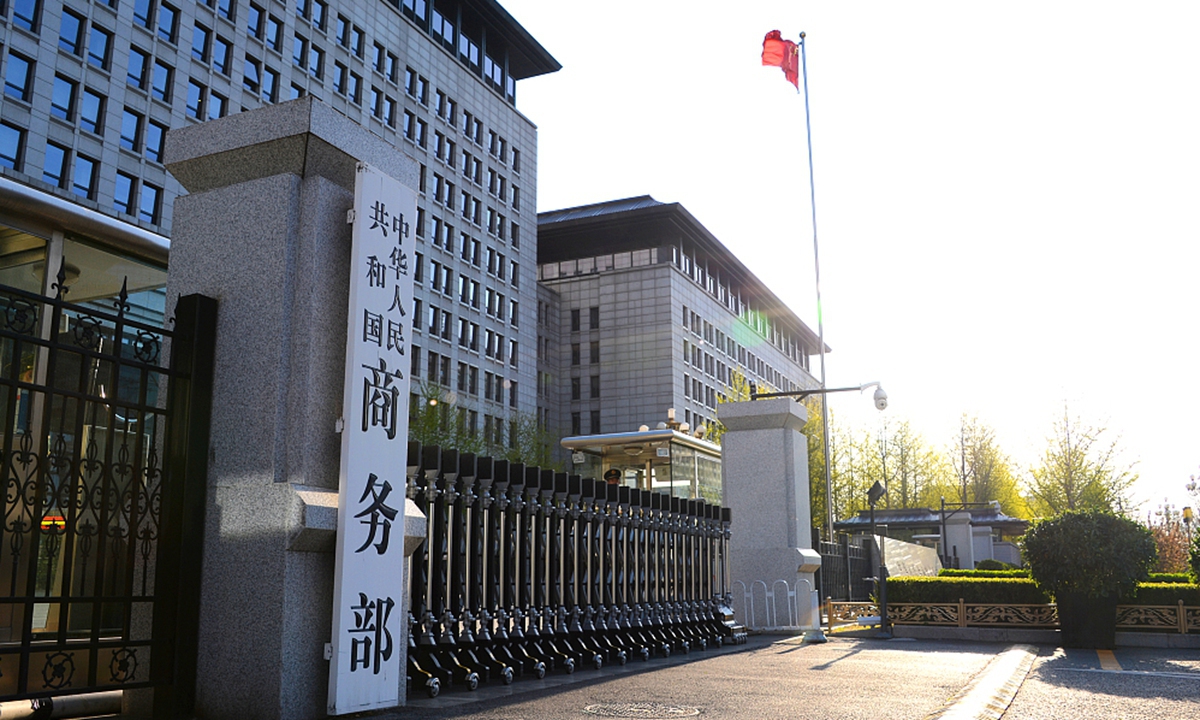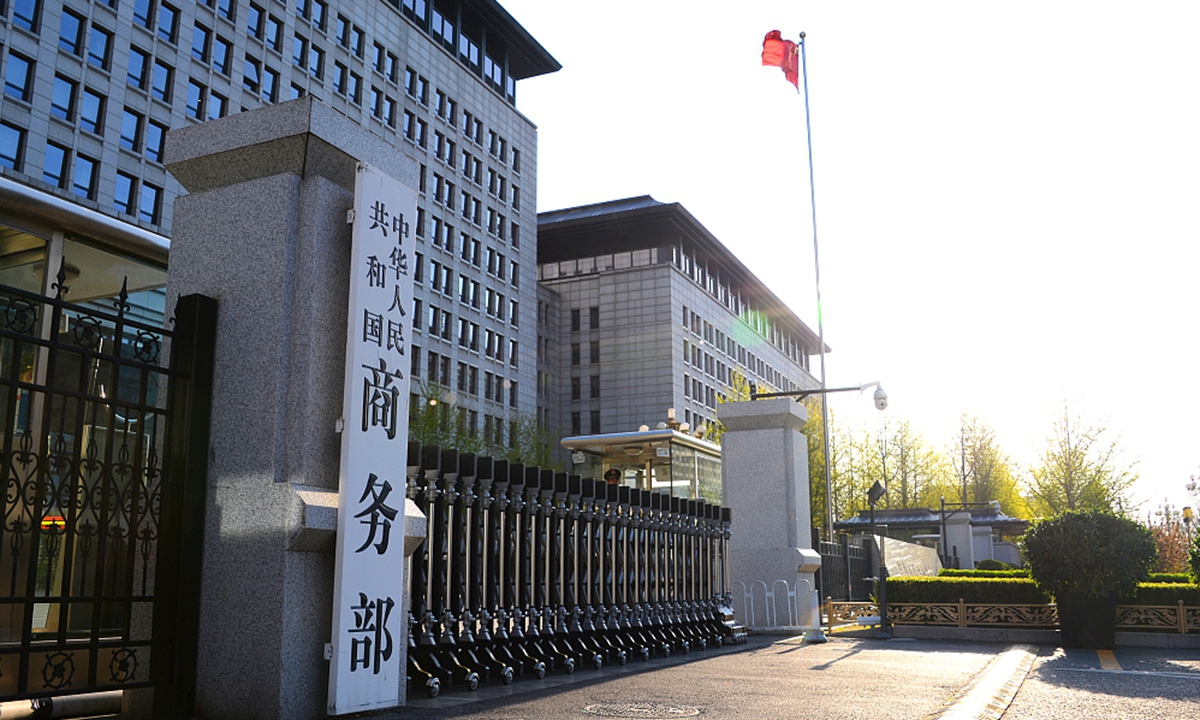China’s Commerce Ministry rejects Western accusations of adopting prohibited subsidies

MOFCOM spokesperson He Yadong at a press conference on December 28, 2023 Photo: Tao Mingyang/GT
China's Ministry of Commerce (MOFCOM) on Thursday rejected Western accusations that China adopts subsidies prohibited by WTO, saying that China does not have any prohibited subsidies in violation of WTO rules, and the country will continue to build an open market, based on free and fair competition.
The ministry said the Western concocting and hyping of China's so-called "overcapacity" issue is playing typical double standard, reflecting unilateralism and protectionism.
"Some countries accuse China of creating an unfair competitive advantage and market distortions through government subsidies, which is a complete distortion of the facts," said He Yadong, the spokesperson from MOFCOM.
He said that China's subsidy policies comply with the WTO rules, and the competitiveness of Chinese products results from free market competition, not from government subsidies. "The leading companies in the new energy, platform economy, and consumer electronics sectors are mostly private, with foreign-funded enterprises accounting for 30 percent of China's 2023 imports and exports," He Yadong said.
"Some countries abuse unfair trade measures like imposing illegal tariffs, resorting to discriminatory subsidies, and unilateral sanctions while accusing China," the spokesperson said, stating that fair competition means excelling through one's efforts and cooperation, not through exclusion and violation of the rules.
He stressed that China opposes unilateralism and protectionism, advocating for a high-standard market openness, excellent business environment, and continuous technological and industrial progress for shared development.
Recently, the US announced a significant increase in tariffs on a range of Chinese products, including electric vehicles, solar panels, semiconductors, and advanced batteries.
And, the recently concluded G7 Finance Ministers and Central Bank Governors meeting also hyped the so-called "overcapacity" issue in China's new energy industry. Nicholas Lardy, a senior fellow at the Peterson Institute for International Economics, argued that the "overcapacity argument" serves as an excuse for protectionism, posing a potential danger to global trade, Xinhua News Agency reported.
Global Times



